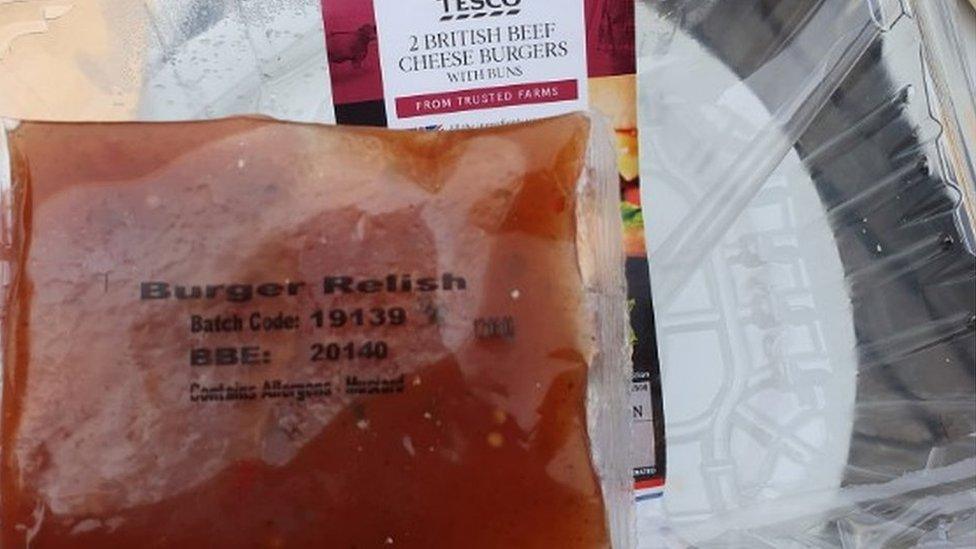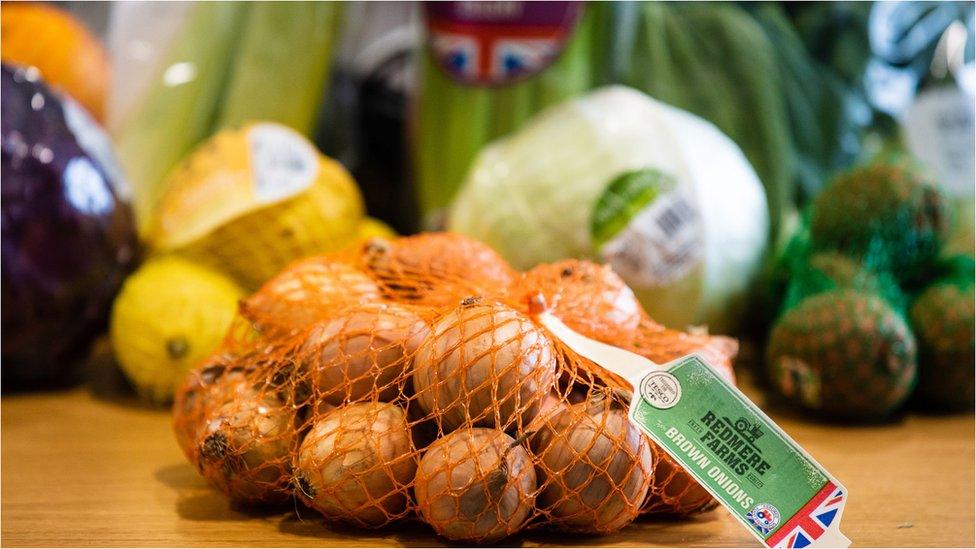Tesco customer in a pickle over labelling
- Published

Tesco has tried to resolve a condiment conundrum in one of its ready meals.
Customer Matthew Stock did not mince his words when he tweeted Tesco asking it to explain a best before date of 20140 on a sachet of burger relish.
The chain responded saying the date code on the relish included with two beef burgers was the "Julian date".
Translated into the Gregorian calendar, the most commonly used calendar in the world, 20140 would be 20 May 2020, Tesco tweeted.
However, adding to the confusion, the Julian date 20140 actually corresponds to 19 May 2020, the 140th day of 2020, not 20 May.
The Julian date is used in some fields, including astronomy and the food industry, to calculate the days which have passed between two events, for example between a food production date and a best before date.
It is not based on the historical Julian calendar, which predated use of the Gregorian calendar in the UK.
Allow X content?
This article contains content provided by X. We ask for your permission before anything is loaded, as they may be using cookies and other technologies. You may want to read X’s cookie policy, external and privacy policy, external before accepting. To view this content choose ‘accept and continue’.
Mr Stock bought the Tesco own label meal which contained two burgers, two buns, two cheese slices and the sachet of relish.
He tweeted the supermarket, saying: "Hello there Tesco, could you please explain this expiry date please?"
Tesco employee Maggie replied: "The date code on the relish only is the Julian date. 20140 is the 140th day. This translated into the Gregorian calendar is the 20th May 2020."
Matthew Stock tweeted back: "Are you serious? Surely that's not a legitimate way of dating products?"
Maggie responded: "Hi Matthew, I fully agree with you. If I had received this myself I wouldn't have known what this meant. What I can do is pass this through to my support team to ask why they date it this way. I'll come back to you asap."
'Relish the chance'
A Tesco spokesman told the BBC: "The Julian date code is used by our supplier for internal traceability purposes. The standard best before date is printed on the outside of the main packaging.
"We're sorry if any of our customers got in a pickle about this and we have relished the chance to put the record straight.
"All food manufacturers are legally required to stamp a best before or a use-by date on their products.
Best-before dates are indicators of the quality of the food item, use-by dates are about their safety.
The Food Standards Agency (FSA) pointed out the date on the relish shown in the tweet was "best before end" and "is about quality not safety".
In a statement the FSA said: "The outer pack should have a use-by date or best-before date, this would be the date consumers would be expected to follow for the product as a whole."
- Published8 October 2018

- Published22 May 2018
